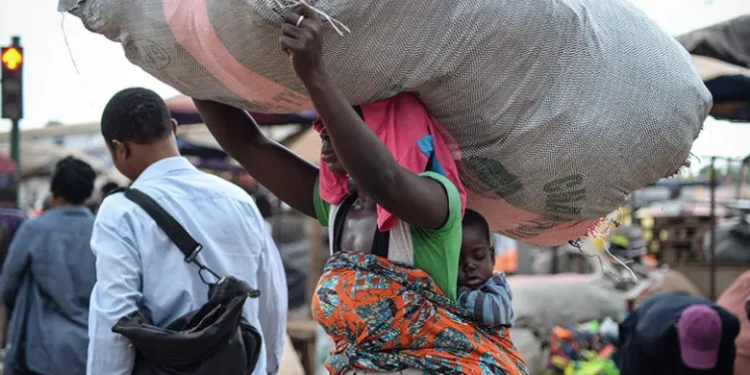36% of Ghanaians Consider Increasing Workload to Cope with Economic Pressures
According to the report, the continued depreciation of the Ghanaian cedi against major foreign currencies has been a key driver of inflation, pushing up the costs of essential goods such as food, fuel, and housing.
- Advertisement -
Some thirty-six percent (36%) of Ghanaians intend to increase their workload to cope with financial pressures and the cost of living in the country.
Another 29% of the population is looking at starting businesses despite the current tough economic climate, to earn income and cope with the high cost of living.
- Advertisement -
The findings, contained in the 2024 KPMG West Africa Banking Industry Customer Experience Survey, highlight how Ghana’s economic challenges—rising inflation, currency depreciation, and increasing living costs —are influencing financial behaviors and decision-making among citizens.
- Advertisement -
While a significant portion of Ghanaians are actively seeking ways to boost their income, 6% have expressed reluctance to venture into entrepreneurship due to uncertainties in the business environment.
According to the report, the continued depreciation of the Ghanaian cedi against major foreign currencies has been a key driver of inflation, pushing up the costs of essential goods such as food, fuel, and housing.
- Advertisement -
However, Ghana’s economy has shown signs of recovery following an International Monetary Fund (IMF) bailout and debt restructuring in May 2023.
Inflation dropped from 42% in May 2023 to 23% in November 2024, while GDP growth is rebounding, signaling an easing of economic pressures. Despite these improvements, many Ghanaians continue to feel the financial strain, prompting changes in spending, saving, and investment behaviors.
KPMG’s 2024 survey provides critical insights into income spending patterns, savings trends, and the evolving priorities of Ghanaians.
Source:norvanreports.com
- Advertisement -


